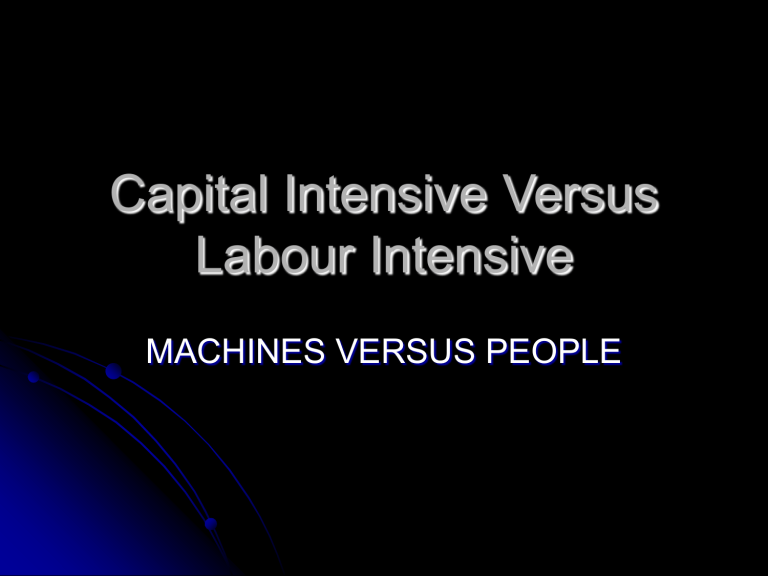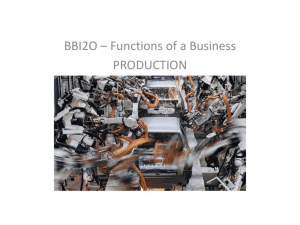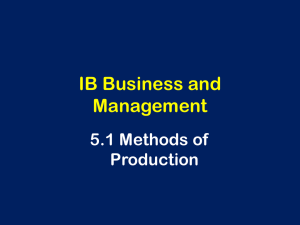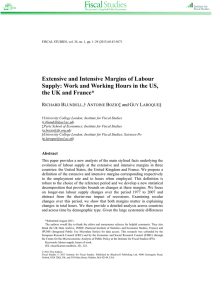Capital Intensive Versus Labour Intensive

Capital Intensive Versus
Labour Intensive
MACHINES VERSUS PEOPLE
Organisations need to make decisions on whether to be capital or labour intensive and it depends upon:
Amount to be produced
The product – is it a standardised product or unique
Who you are selling to – luxury item or not
Whether the product/service requires the
“personal touch”
Advantages of Labour Intensive production
Workers can learn new skills
People can think for themselves
Labour can be used to do many different tasks
Personal touch – people can interact better with customers – a lot of services cannot be provided by machinery eg hairdressing
Disadvantages of Labour intensive production
Wage costs are high
Can only work for so long
Workers can take ill, need holidays etc
Advantages of Capital Intensive
Production
Can work 24/7
Quality of work is consistent
Work is accurate and precise
Can do work which is too dangerous and unpleasant for people
More productive than labour – a machine can produce more output per hour than labour
Machines don’t need breaks or holidays etc
Disadvantages of Capital Intensive
Production
Initial cost is high – have to spend a lot of money to buy machinery at first
They need to maintained
They can break down – if they do it can halt production
Can only be used for the tasks they were designed to do
Can cause unemployment
In conclusion
Business will use a combination of people and machines
Important factors which will decide what combination of labour and machinery used is – how a business’s profits will be affected and if it can afford to buy the machinery
Mechanisation and Automation
Mechanisation is labour being substituted by machinery, but labour still operates the machines
Automation means labour is replaced by machines and machines work automatically and are computer controlled. Workers supervise.
Reasons for Automation and Mechanisation are
– to reduce costs and increase productivity.
Task
2 car manufacturers – Vauxhall in
Ellesmere Port – look at the production methods used – and labour and capital intensive etc – prices of cars – the product
– standardisation
Rolls Royce – look at above – make a comparison – why do you think there is such a comparison









